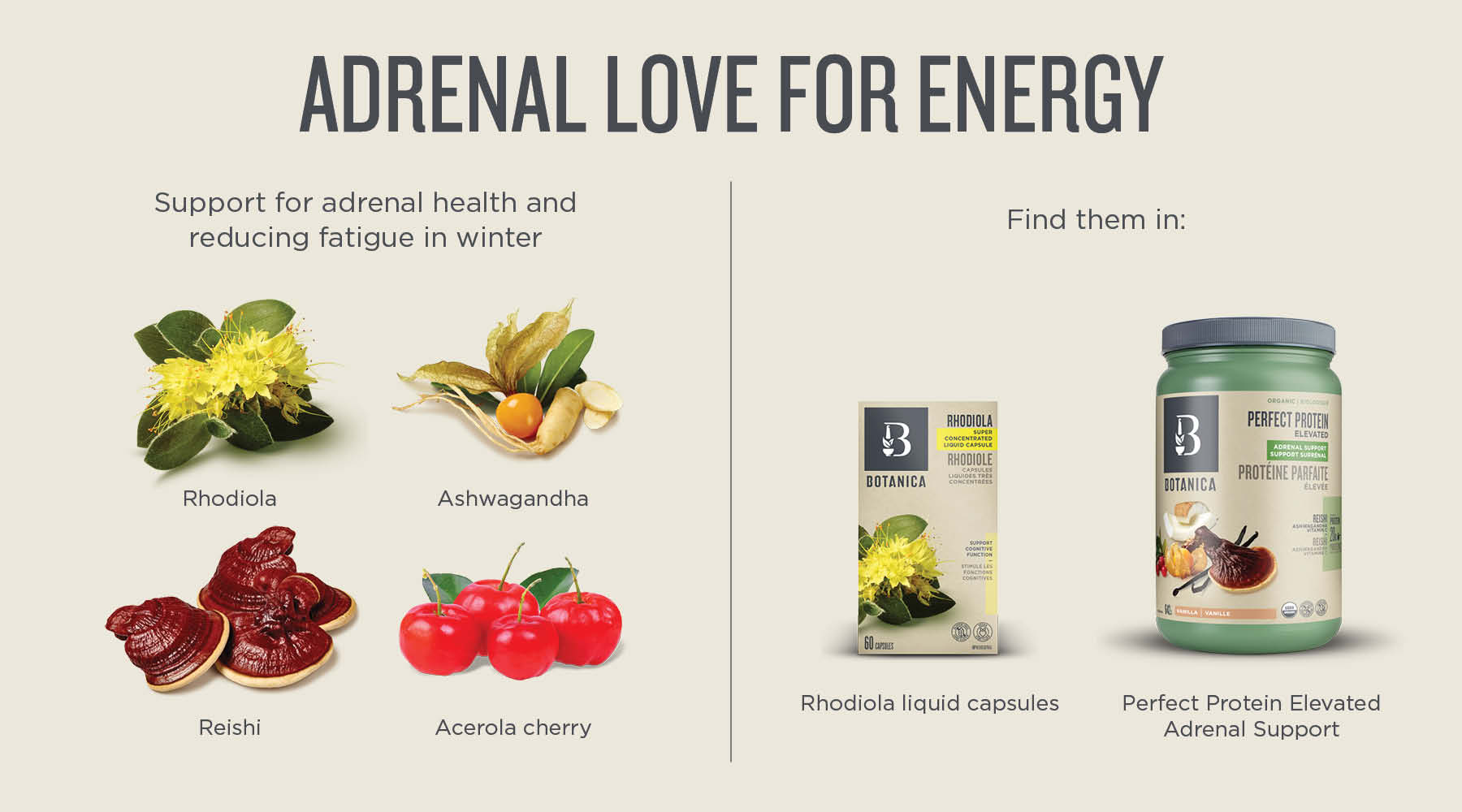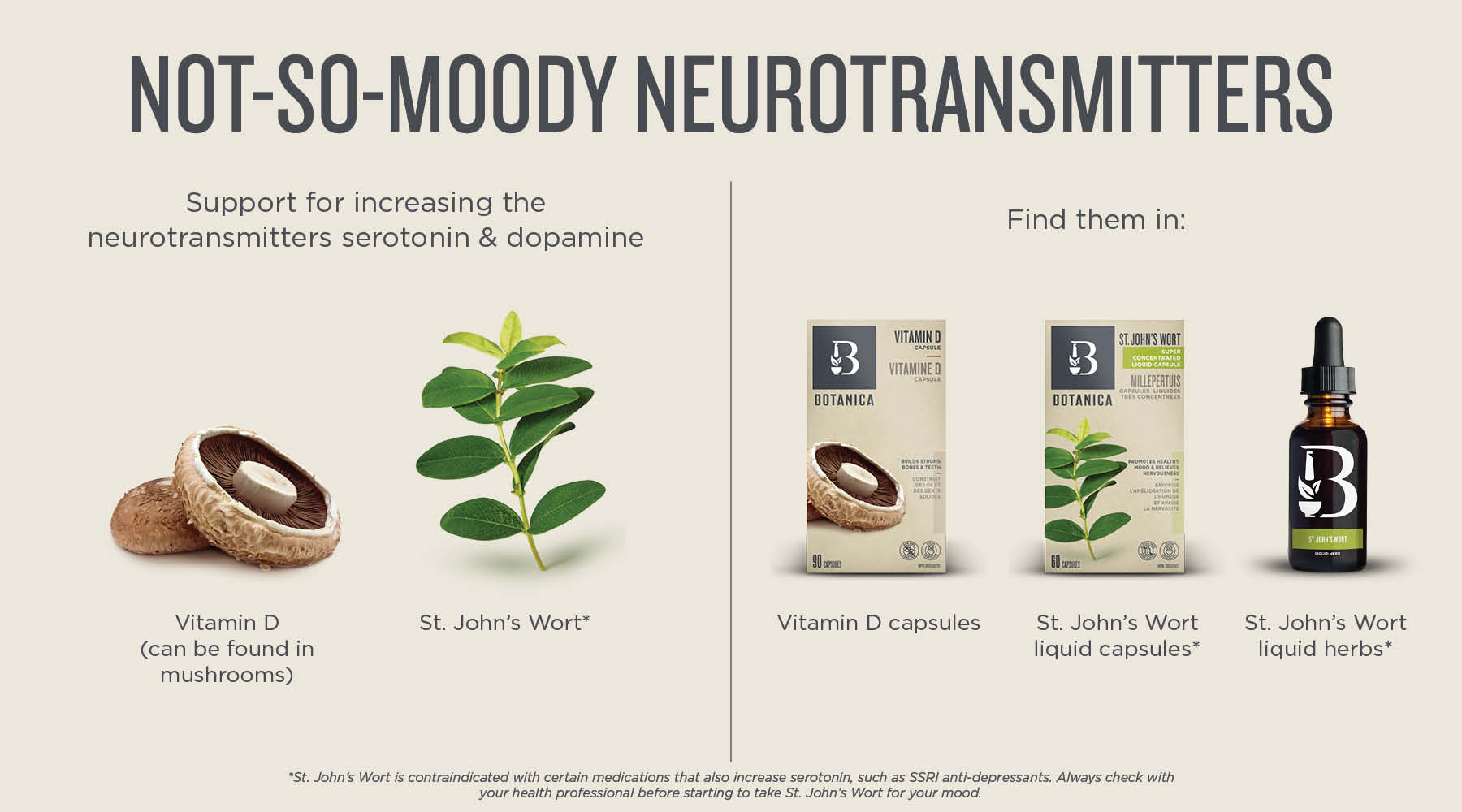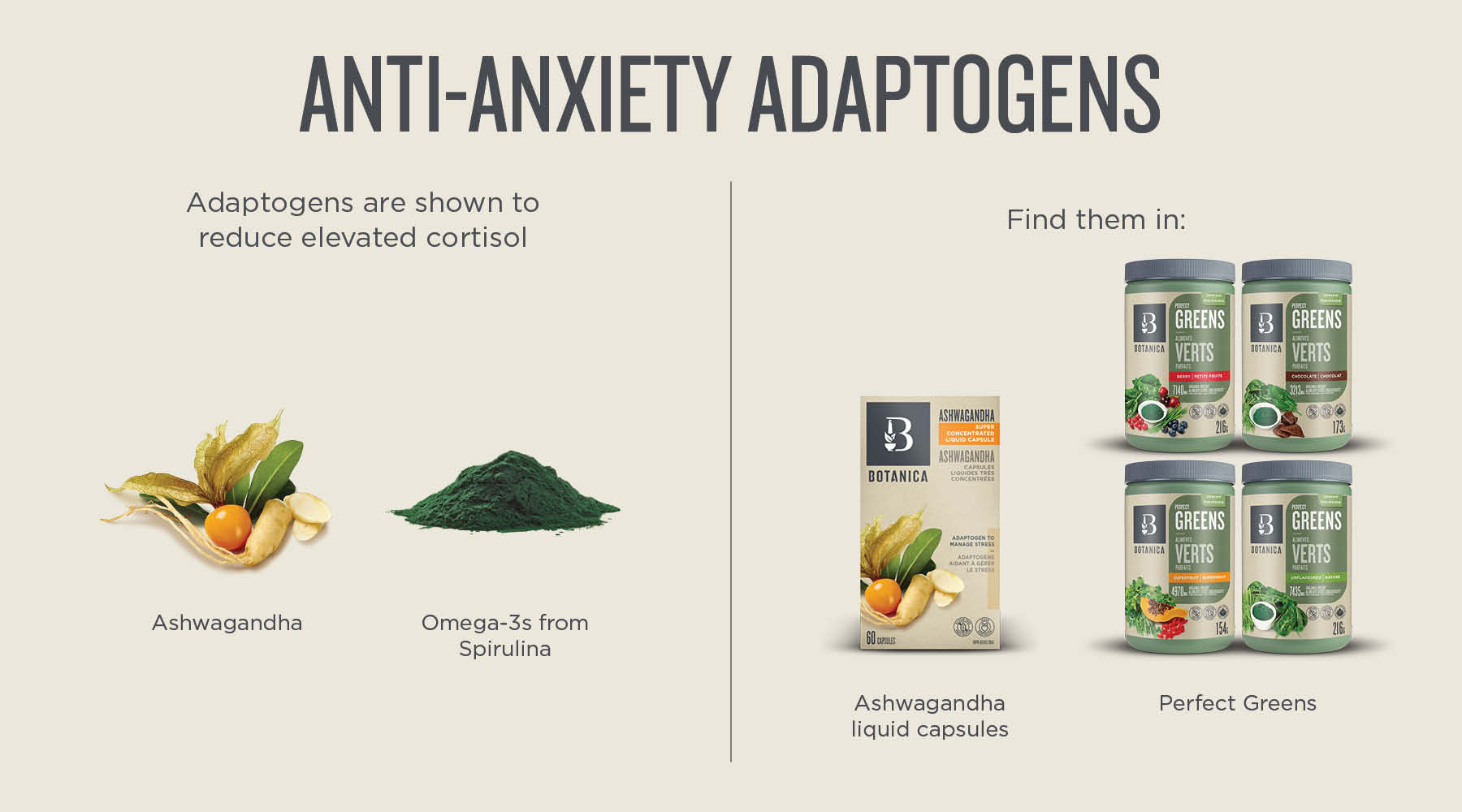Blog
Stress and Mental Health: Your Allies for Daily Support
Orsha Magyar, CEO & Founder, NeuroTrition Inc.January 15, 2024
We all experience stress sometimes and it’s okay, because we all have a special mechanism inside of us called a stress response. This is how our bodies deal with stress physically, mentally and emotionally.
But then why are stress-related physical and mental health illnesses skyrocketing?
Researchers are learning that it has to do with whether the stress we are experiencing is short-term, (ie. acute), or chronic (which is technically defined as two weeks or more). Science is showing that we have essentially out-evolved our stress response (which evolved to help us deal with acute, not chronic, stressors). And that long-term stress is causing us to incorrectly respond with anxiety, depressed mood and low energy (among other effects on our mental health).
OH THE WOES OF WINTER
Have you noticed that your mental health is worse in the Fall and Winter months than during Spring and Summer?
Or, if you have a diagnosed mental illness, have you experienced its symptoms more frequently and severely during Fall and Winter?
Mental health, or lack thereof, is so multi-faceted. This means that it has many underlying causes ranging from genetics to environmental factors. One of those facets includes some of the unique nuances that Winter brings:
- Colder temperatures. This make our noses run and eyes water, increasing how often we touch them and making us sick more often because we’re transferring pathogens on our hands to the delicate mucous membranes in our nose and eyes (if you’ve ever wondered why you get sick more often in Winter, this is why).
- A reduction in natural sunlight and daylight hours.
- Significantly higher stress levels over the holidays. Keep in mind that our stress response reacts to real or perceived stress in the same way and, when we are feeling stressed for long enough (a minimum of two weeks), it will begin to respond with mental health symptoms.
We see higher rates of anxiety, poor mood and low energy during Winter, and these mental health concerns are in fact connected in some people to these three things. But how, you ask? Let’s discover a few neuro-nutritional connections – and what you can do for things like stress management that go beyond standard relaxation techniques (like deep breathing) that you already know are oh-so-good for you!
TOP THREE WAYS TO SUPPORT WINTERTIME MENTAL HEALTH
1. ADRENAL LOVE FOR ENERGY
When I think about energy, I think about our adrenal glands. Their job is to make hormones like cortisol (CORT) to help us cope with stress – and boy, are they absolutely assaulted during Winter when we are getting sick more frequently. Did you know that when we’re sick our adrenals make more CORT, and that vitamin C is essential in the creation of CORT? Our overworked adrenals use – and thus need – more vitamin C, and if we’re deficient it may make our recovery longer and symptoms like fatigue (1) linger. To improve energy, our adrenals need major love. My go-to supplements for supporting adrenal health and reducing fatigue in Winter are Vitamin C, rhodiola (found in Rhodiola Liquid Capsules), ashwagandha, reishi and acerola cherry (all found in Perfect Protein Elevated Adrenal Support).
2. NOT-SO-MOODY NEUROTRANSMITTERS
My mind inherently jumps to neurotransmitters when I consider mood (I spent my entire Master’s degree studying dopamine). When there is less sunlight and daylight, we are more likely to develop a deficiency in our “sunshine vitamin,” vitamin D, that is needed to build key neurotransmitters. Vitamin D is shown to increase the neurotransmitters serotonin and dopamine (2), and I suggest taking Vitamin D Capsules, ideally year-round but at a minimum during the Winter months. Another supplement that increases bioavailability of serotonin, dopamine and epinephrine, and is shown to work similarly to antidepressant medications that increase serotonin, is St. John’s Wort (3) (and my recommendation is a Liquid Herb* or Liquid Capsule*). This may also be helpful in cases of Seasonal Effective Disorder (SAD).
*please note St. John’s Wort is contraindicated with certain medications that also increase serotonin, such as SSRI anti-depressants. Always check with your health professional before starting to take St. John’s Wort for your mood.
3. ANTI-ANXIETY ADAPTOGENS
Stressful situations are inevitable. So rather than telling people to “try to lower your stress and anxiety,” I teach them about coping with stress by reducing its negative impact on their physical and mental health. Adaptogens are shown to reduce elevated cortisol, and possibly the most well-researched adaptogenic herb is ashwagandha so I suggest Ashwagandha Liquid Capsules. Looking for a non-herbal adaptogen? Spirulina is a wonderful plant-based source of omega-3 fatty acids, which are adaptogens too! My top foundational recommendation for anxiety is Perfect Greens, which contains not only spirulina but a lot of other greens chock full of our anti-anxiety mineral magnesium (that lives inside plant blood, or chlorophyll).
While winter is unavoidable, you can take control of your stress and mental health. With a few targeted approaches, such as considering your adrenals, neurotransmitters, and adaptogens, you can chill out – despite the chill in the air!
References
(1) Tardy, A-L., Pouteau, E., Marquez, D., Yilmaz, C., & Scholey, A. 2020. Vitamins and Minerals for Energy, Fatigue and Cognition: A Narrative Review of the Biochemical and Clinical Evidence. Nutrients, 12(1), 228-263.
(2) Seyedi, M. et al. 2019. The Effect of Vitamin D3 Supplementation on Serum BDNF, Dopamine, and Serotonin in Children with Attention-Deficit/Hyperactivity Disorder. CNS & Neurological Disorders – Drug Targets, 18(6), 496-501.
(3) Ng, Q.X., Venkatanarayanan, N. & Ho, C.Y.X. 2017. Clinical use of Hypericum perforatum (St John’s wort) in depression: A meta-analysis. Journal of Affective Disorders, 210, 211-221.



